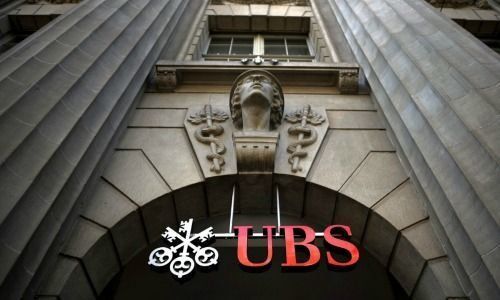Barclays Analysts Say UBS May Need Strategy Overhaul
Barclays analysts are questioning if UBS should focus on Ultra-High-Net-Worth clients and whether shareholders may be better off with fewer resources dedicated to its investment bank.
Growing the Ultra High Net Worth segment could be negative for UBS' return on tangible equity (RoTE), Barclays analysts wrote in a research note last Monday. This is because their previous analysis showed that the ultra-high-net-worth (UHNW) segment offers lower margins than hig-net-worth (HNW) client segment.
«If around 12 percent of the investment bank is relevant/required for them, growth in this segment is negative for the overall RoTE potential of the group. This raises the question: why does the group continue to invest in these areas?» Barclays analysts asked.
Is Resource Allocation to IB justified?
UBS and Credit Suisse have targeted the UHNW client segment as a key area for growth, and both banks have given analysts the perception that it is their investment bank (IB) operations that got the banks the competitive advantage in this space.
Focusing their analysis on clients outside of the U.S., Barclays analysts questioned if the banking group should allocate one-third of group resources to its IB division. By allocating just 12 percent of the IB balance sheet to the UHNW segment, the blended pretax RoTE declines close to the same level assumed for the HNW segment, which was 37 percent and 34 percent in 2017 and 2018 respectively.
UBS defines UNHW as those with bankable assets above $50 million or above $100m in total wealth.
Underperforming Versus Peers
In 2018, UBS reported pre-tax RoTE of close to 15 percent, less than half of that reported by Julius Baer (at 33 percent), which is deemed more of a «pure play» wealth manager, observed Barclays analysts. UBS is currently targeting RoTE of 12.5 percent in 2019.
The key arguments for the difference include higher legal costs to support the global nature of the businesses, the group's U.S. business having structurally lower operating margins, the business mix with a significant amount of capital tied up in the IB, and its systemic importance within Switzerland and the associated regulatory requirements.
Near-Term Changes Unlikely
While the above arguments may be valid, the analysts still ponder whether UBS has the right business model to optimize returns and whether group profits could decline further.
«Perhaps more broadly, does it make sense to break up the group, or put another way, are costs of size more than outweighing the benefits?» Barclays analysts asked. «We are not expecting any changes in the near term, and so remain Underweight, but fundamentally we think the group needs a more significant review of strategy versus what was presented to the market last year.»




























